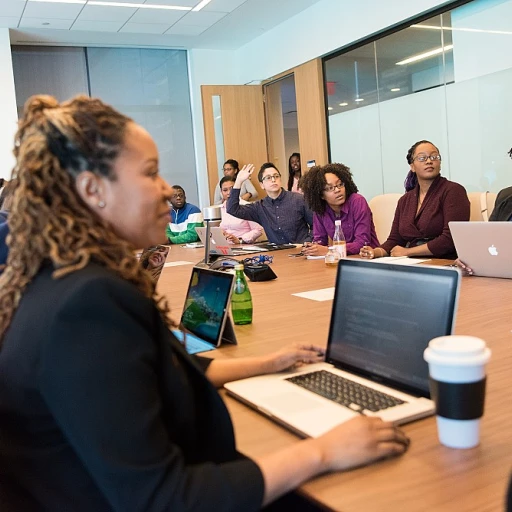
Understanding Talent Assessments
The Importance of Thorough Talent Evaluation
In a rapidly evolving business landscape, the need to master talent management is more pressing than ever. Understanding talent assessments is crucial for organizations aiming to make informed hiring decisions. These assessments go beyond simple evaluation metrics to provide a comprehensive understanding of a candidate's capabilities. By focusing on key areas such as cognitive ability, specific skills, and leadership potential, organizations can identify high potential employees who will enhance their workforce.
Talent assessments leverage tools that measure a candidate's strengths and weaknesses. This data-driven approach allows businesses to scrutinize potential employees beyond their resume, gaining insights into their ability to perform job responsibilities effectively. Furthermore, these assessments are not just useful for hiring purposes; they play a significant role in leadership development and succession planning, ensuring that the organization is prepared for long-term growth and success.
By integrating talent assessments into hiring processes, organizations not only enhance their decision-making but also foster a culture of continuous development. This strategic approach to talent management prioritizes employee engagement and aligns with the organization's overall objectives. As discussed further, technological advancements in assessment tools continue to evolve, offering new possibilities to refine candidate sourcing strategies.
Integrating Talent Assessments into Candidate Sourcing
Seamlessly Weaving Talent Assessments into the Sourcing Fabric
Integrating talent assessments into candidate sourcing is a strategic approach that can significantly enhance the hiring process. In today’s competitive job market, organizations are increasingly turning to assessment tools to identify candidates with the right mix of skills, potential, and alignment with the organization's culture. This integration not only aids in identifying high potential individuals but also streamlines talent management by aligning recruiting strategies with long-term business goals. Incorporating assessments within candidate sourcing starts with understanding the specific skills and attributes that are critical for the roles being filled. Whether you're seeking cognitive ability, leadership potential, or a specific set of skills, assessments provide insights that traditional resumes or interviews might overlook. Comprehensive talent assessments can focus on cognitive ability tests and personality assessments to gauge strengths and weaknesses, which can be crucial in selecting potential employees who best fit into the organization’s workforce. Moreover, these tools contribute to data-driven talent decisions by providing objective insights into candidates’ performance potential. This makes the hiring process not only more efficient but also more equitable by minimizing biases that can occur during traditional hiring methods. Importantly, a well-integrated assessment strategy augments the broader talent strategy by informing leadership development and succession planning. It’s crucial to ensure that talent assessments are seamlessly woven into the broader recruitment framework without appearing as an isolated process. Effective integration means aligning assessments with the organization's existing talent management tools and workflow. This approach not only facilitates smoother transitions but also enhances employee engagement by aligning onboarding processes with the insights gained from early assessments. Organizations looking to retain talent over the long term should carefully evaluate the impact of assessments on their overall approach to employee development. For more insights on retaining employees in specific roles, read more here. By integrating talent assessments in this manner, businesses can ensure that they are building a formidable workforce poised for future success.Benefits of Talent Assessments in Recruitment
Assessing Potential Beyond Resumes
Integrating comprehensive talent assessment tools into the recruitment process offers numerous advantages. This approach goes beyond traditional resume screening to offer a deeper understanding of candidates' skills and capabilities. By implementing personality assessments and cognitive ability tests, organizations can identify high potential employees who might not stand out through resumes alone.Data-Driven Talent Decisions
Talent assessments provide insights into a candidate's cognitive abilities, specific skills, and leadership potential, which help make informed talent decisions. These data-driven processes enable businesses to evaluate strengths and weaknesses, ensuring candidates align with organizational needs and culture. This ensures that hiring decisions are not just based on gut feelings but on solid evidence.Long-Term Workforce Planning
Beyond immediate hiring needs, integrating talent assessments aids in leadership development and succession planning. By understanding the leadership potential of candidates, businesses can make strategic decisions that contribute to long-term success. These assessments serve as a cornerstone for developing a robust talent strategy that encompasses employee engagement and organizational growth. For tech companies focusing on high-stakes roles, adopting effective strategies for CTO succession planning can be pivotal for sustained innovation and leadership continuity.Enhanced Job Performance and Employee Development
Talent assessments are invaluable for identifying areas of development and for creating opportunities for employees to learn and grow within the organization. Through regular assessments, potential employees are not only selected but mentored to reach their full potential, thereby maximizing workforce productivity and job performance.Challenges in Implementing Talent Assessments
Overcoming Barriers in Implementation
Introducing talent assessments into the hiring framework often presents its share of challenges. Understanding these potential hurdles can help organizations strategize more effectively, ensuring smoother integration and maximizing the benefits of these tools. By identifying and addressing common obstacles, businesses can leverage talent assessments to enhance their recruitment processes and better align with their talent management strategies.
Ensuring Organizational Alignment
One significant challenge is ensuring that the talent assessments align with the overall goals and culture of the organization. Each business has its unique set of values and operational dynamics, which means a one-size-fits-all approach for assessments is rarely effective. Comprehensive talent assessments need customization to reflect the specific skills and leadership potential desired by the company, fostering employee engagement and development.
Integration with Existing Systems
Integrating new assessment tools into existing recruitment frameworks can be technically challenging. It often requires a seamless synchronization with current HR systems and workflow processes. Organizations must ensure their technology infrastructure is capable of supporting these tools, which may include cognitive ability tests or personality assessments, for better talent decisions. This integration demands careful planning and often, technological upgrades or changes in infrastructure.
Data Privacy and Ethical Considerations
Data-driven talent assessments involve significant personal data collection, raising legitimate privacy concerns. Protecting candidate information and adhering to data protection regulations is paramount. Companies must establish strict confidentiality protocols and be transparent about the data handling processes to maintain trust among potential employees and safeguard ethical standards.
Training and Buy-In
Another barrier is obtaining buy-in from leadership and training employees on the use of assessment tools. For assessments to offer valuable insights into candidate skills and potential, those using the tools must be proficient and fully understand the benefits of these assessments for performance and succession planning. Providing necessary training and highlighting the long-term advantages can improve adoption and effectiveness.
Over-Reliance on Assessment Outcomes
While assessments provide valuable insights into candidates' strengths and weaknesses, over-reliance on these tools without considering the broader context of a candidate's experience and potential may limit their effectiveness. Businesses need to strike a balance between assessment outcomes and traditional evaluation methods to make informed hiring decisions that contribute to workforce development and overall business success.
By addressing these challenges proactively, organizations can effectively integrate talent assessments into their hiring processes, driving better talent strategy outcomes and ensuring a robust workforce ready to tackle future leadership development needs.
Technological Advancements in Talent Assessments
Leveraging Tech Innovations for Talent Insights
In recent years, technological advancements have transformed the landscape of talent assessments, providing organizations with more robust and data-driven solutions. These tools, designed to evaluate a candidate's abilities, potential, and fit within a company's culture, offer invaluable insights that can enhance recruitment and development strategies. Modern assessment tools utilize AI and machine learning algorithms to assess cognitive abilities, personality traits, and specific skills efficiently and accurately. This allows organizations to go beyond traditional methods and adopt comprehensive talent strategies that prioritize both immediate hiring needs and long-term workforce planning.- Cognitive Ability and Personality Assessments: These assessments are integral in predicting job performance, identifying high potential candidates, and understanding strengths and weaknesses. With the aid of technology, assessments are now more precise, allowing hiring managers to make informed talent decisions.
- Streamlining Leadership Development: Technological tools allow for the seamless integration of talent assessments into leadership development and succession planning. They also provide actionable data to support leadership potential evaluations and employee engagement initiatives.
- Enhancing Talent Management: Technological advancements allow organizations to identify potential employees who align with their business values and objectives, ensuring the best fit for both role and culture. This plays a crucial role in establishing a stable and productive workforce.













